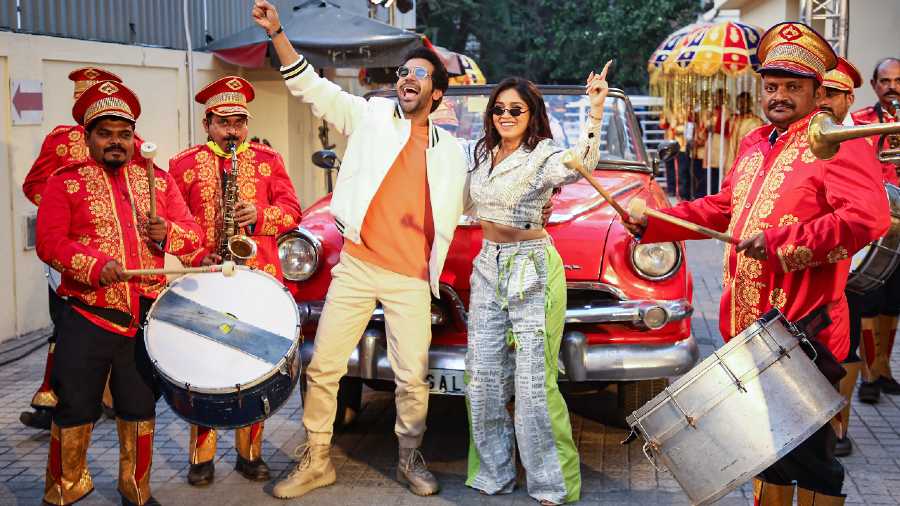If you can keep your head when all about you are losing theirs...
Thirteen words by Rudyard Kipling tell a complete story. It’s not only for spurning expensive gifts from conman Sukesh Chandrashekhar or for nipping his attempts at fostering a friendship that makes Bhumi Pednekar a girl who “keeps her head when all about her are losing theirs...”
Within seven short years, the average-looking outsider with no known entry points to the film industry has also made some of the most audacious choices in recent times. Most girls would want to be a part of the glamour brigade that dances, sings and bats her eyelids before venturing into the unsafe. But Bhumi dived straightaway into building variety into her repertoire. For a girl who’d looked with longing at the film industry from a long distance away, clueless how she could get the gates to swing open for her, it was particularly spunky.
Credit her unique position to her daring but also give kudos to her destiny. “I tasted blood with my very first film,” she told me last week, after I’d watched her play a gay girl in a lavender marriage. Titled Badhai Do, it marked one more landmark step taken towards inclusivity in her cinema.
“When I sat at the narration of Badhai Do, my gut told me that this was going to be special,” she said. “The film makes you laugh so much you don’t realise that you’ve been left with something to think about. By the time the narration ended, the way it moved me, I was thanking my stars that this film came to me. You have to be extremely fortunate for a Badhai Do to choose you.”
In 2013, it was an unseen hand that had handed her a break with Yash Raj Films no less in a film that disrupted the mould of the conventional heroine. Which girl who aspired for stardom in a glamour world would have wanted to make an entry as an oversized married woman? But it was precisely its unorthodoxy that began to dictate how Bhumi would chart out a career so unique.
As she mused aloud, “With Dum Laga Ke Haisha, my first film, I experienced the power of cinema, and I’ve consciously veered towards parts with a strong messaging, cinema that empowers my gender. That’s the kind of person I am too. I gravitate towards cinema that leaves you with something more than just a few laughs.
“Apart from playing women who break stereotypes, it keeps me on my toes to ensure that I’m not repetitive,” she remarked.
A housewife on the run in Sonchiriya, a 60-plus sharp shooter from the Hindi heartland in Saand Ki Aankh, a dark-skinned lawyer battling colour prejudice in Bala, a girl helping her boyfriend overcome erectile dysfunction in Shubh Mangal Saavdhan, a maid in a sexual relationship with her employer in Lust Stories, a wife who wouldn’t return to her husband’s house until he built a toilet inside his house in Toilet Ek Prem Katha, each role a statement wrapped up most of the way with mirth and a chuckle.
It’s a conscious mix, admitted Bhumi, to entertain and shoot a message through. “Comedy is consumed really well by the family audience,” she explained. “It’s the best way to put across a thought that would be otherwise be considered uncomfortable. Like in Badhai Do, we were already dealing with a subject that would make many uncomfortable and we wanted the film to be watched sitting with the entire family. That’s the only way you can normalise things.”
“Art,” she observed, “does not have an expiry date. I’ve always wanted to leave behind a legacy of films that can be watched by many generations, films that outlive me. So I try to choose cinema that helps achieve the vision that I have for myself.”
What adds sparkle to her endeavour is that Bhumi has an 80 per cent success rate with inconsequentially few commercial setbacks like Bhoot: The Haunted Ship and Shubh Mangal Zyada Saavdhan. Keep your head, girl. Luck does favour the brave.
Bharathi S. Pradhan is a senior journalist and author











